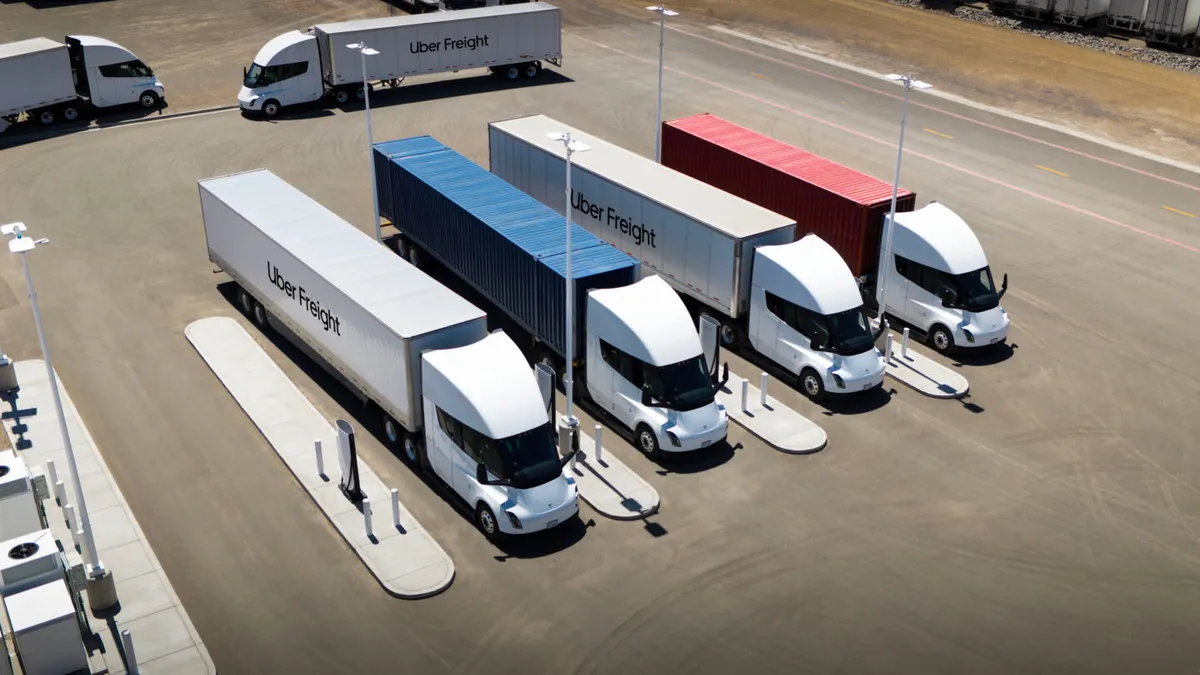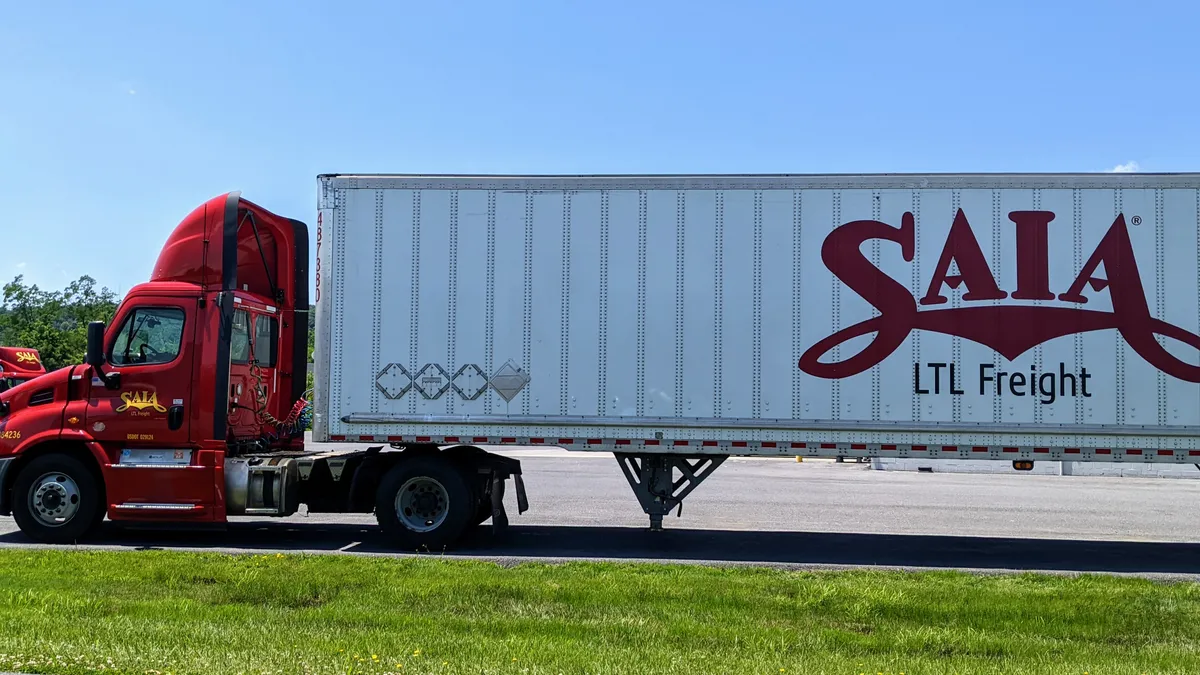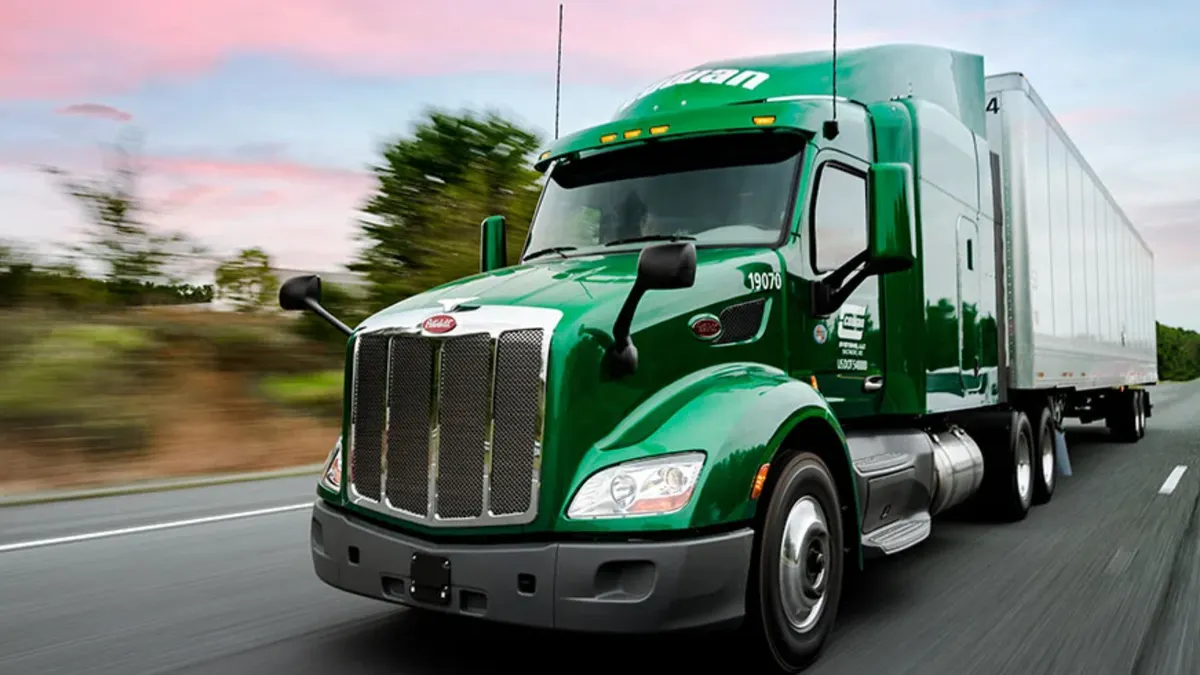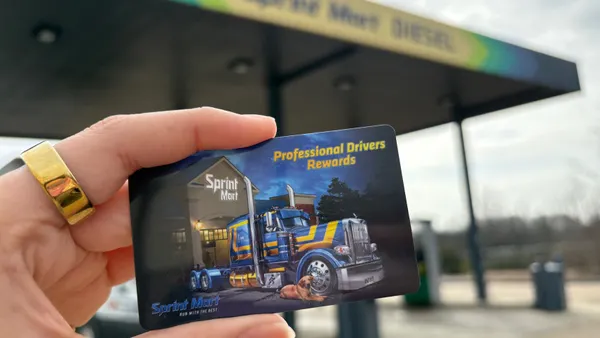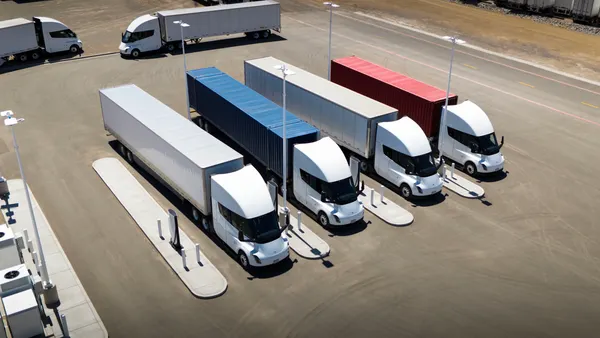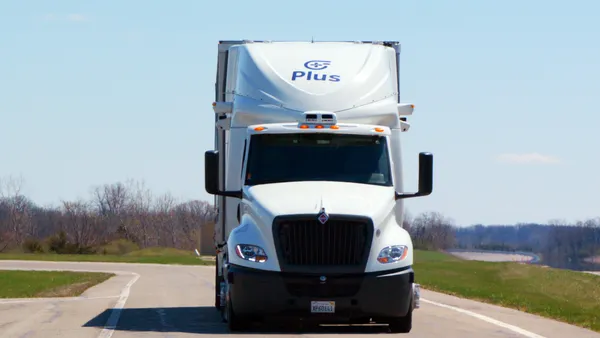Dive Brief:
- Uber Freight and Tesla have joined forces to introduce a Dedicated EV Fleet Accelerator Program that offers subsidies for fleets to buy Tesla Semi electric trucks, according to a Sept. 16 press release.
- Participating carriers are required to enter into a contract with Uber Freight where they “must dedicate their Tesla Semis and associated drivers exclusively to Uber Freight for the length of the contract,” according to the brokerage firm's frequently asked questions.
- The program aims to address the price gap that exists between electric trucks and traditional diesel trucks.
Dive Insight:
Before embarking on the buyers program with Tesla, Uber Freight worked with a group of carriers to pilot the Dedicated EV Fleet Accelerator Program.
The two-month pilot program covered over 394 hours of drive time and 12,377 miles.
“With an average net energy consumption of just 1.72 kWh per mile and only 60 hours of total charge time, these results highlight the operational viability of Tesla Semis on demanding freight lanes,” per the release.
There are still gaps left to make widespread adoption of EVs for freight possible, such as significantly increasing the amount of charging infrastructure.
With the buyers program, fleets are advised to operate within routes supported by Tesla’s public charging network. “Operations are permitted outside of Tesla’s public charging network but finding options to charge may be difficult,” per the company’s website.
Uber Freight has also taken action to address the logistical complexities associated with EV freight transportation. In 2023, it announced its first electric truck pilot with WattEV and CHEP. Under the agreement, WattEV provided its trucks to Uber Freight shippers, beginning with CHEP, and trucks charged using WattEV’s infrastructure.
During the same year, the broker announced a collaboration with Greenlane to accelerate the development and installation of public charging infrastructure for heavy duty battery electric vehicles. Uber Freight was tasked to augment Greenlane’s data to determine corridors that are prime candidates for early HD BEV deployment.
“Optimizing truck charger locations remains a complex task with many variables, including shippers’ locations, grid readiness, throughput time-of-day, locations of truck depots, and land availability,” per a 2023 company press release.


